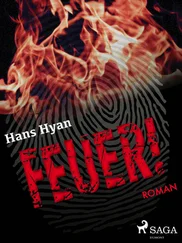“Should I tell Abu Raees he needs to dance in Raqqa when you snap your fingers in Istanbul?” The older man turned his muscular bulk toward the shopkeeper, who paled and started to stammer an apology that was cut short by the younger man’s whoop of delight as he took the box containing the 788T into his hands, testing the weight of it.
“Sorry, Farooq. This will be a while. Abu Raees said I should try out some different mic combos with this to see which works best.” He walked back to the wall of mics and started to pull empty boxes off the shelves, tossing them back toward the shopkeeper, who cried out, “Just tell me which ones you want! You’re ruining my display.”
Farooq made a noise of disgust. “I’m going to that café on the corner. You have half an hour before we go to the airport.”
“Okay. Pick up some takeaway for the new recruits. You didn’t give me anything to eat for hours after I arrived.”
Farooq grinned. “What a baby you were, Parvaiz — afraid to ask for a slice of bread.”
“I’m not Parvaiz anymore.”
“Ma’ashallah,” said the older man, his voice tinged with irony.
“Ma’ashallah,” said the younger one, placing his hand on his heart.
||||||||||||||||||
His journey to the electronics store in Istanbul had started the night last autumn when Isma walked into the kitchen and said she was going to America and so it was time for all three of them to leave their home.
Nothing in the early part of that evening had suggested what it would become. It was just a few weeks after Aneeka had started university, and Parvaiz hadn’t, but already the old routines of their lives had become a thing of the past, so there was a feeling of celebration about Aneeka being home to cook dinner for the first time that week, consulting the grease-stained recipe book with her usual intensity of concentration, as though a recipe might have changed between the forty-ninth time she followed it and the fiftieth. Parvaiz was sous-chef, cutting onions with his swimming goggles on to prevent tears. The playlist compiled by their guitarist cousin in Karachi streamed through the speakers — chimta and bass guitar, dholak and drums; overlaid onto it, the sound of Parvaiz’s knife cutting through the yielding onions, hitting the hardness of the board beneath; two slim bracelets on Aneeka’s wrist clinking together as she measured out ingredients; low hum from the refrigerator; a train pulling into Preston Road station almost precisely at the same moment another train pulled out; the banter of twins. Tonight’s version centered around Aneeka pretending to craft Parvaiz’s profile for an Asian marriage site: Handsome Londoner who loves his sister that sounds incestuous ugly Londoner who loves his sister that sounds desperate handsome Londoner with strong family ties why do you have to be in the first sentence how about broodingly handsome Londoner with no, broodingly handsome is a euphemism for dark-skinned how is it that Heathcliff he was also violent and a bit mad yes but know your audience, dark-skinned is the real problem .
Isma walked into all this, preceded by the smell of dry-cleaning solvent, and said, “A total lack of career prospects is the real problem.” Parvaiz pushed the chopping board to a side, took off the goggles, and picked up his phone, its screen without message notifications from Preston Road friends, now scattered emotionally and geographically by the demands of post-school life. “Turn the volume down and listen to me ,” Isma said. She had a serious look about her that made him do as she asked even though ordinarily he would have turned the volume up in response. Aneeka saw it too, and reached out to put a hand on their sister’s wrist: “Tell us,” she said.
Isma had been issued her visa for America. She would leave for Massachusetts in mid-January. She announced all this in the way another woman would have announced an engagement — proud, shy, worried about her family’s reaction to news no one had anticipated.
Aneeka stepped forward and wrapped her arms around her. “We’ll miss you, but we’re so pleased for you. And proud of you. Isn’t that right, P?”
“America,” Parvaiz said. The word felt strange in his mouth. “They really gave you the visa?”
“I know, I didn’t think they would either.”
When she’d first come to the twins to discuss the letter Dr. Shah had written to her, with its suggestion — almost a command — that she apply for the PhD program, Parvaiz had said, “What’s the point?” And Isma had immediately agreed yes, he was right. Neither Parvaiz nor Isma had come right out and actually said it was the unlikelihood of a visa that made the whole thing futile, but they all recognized well enough when their father was subtext to a conversation. Still, Aneeka was adamant that she apply. “Sometimes the world surprises you,” she said, “and more to the point, if you don’t even try, you’ll always wonder what might have happened.” After enough of Aneeka’s badgering, Isma finally said that it would seem ungrateful to Dr. Shah if she didn’t at least try. She clearly had a greater capacity for hurling herself at disappointment than he’d known, Parvaiz had thought at the time with both irritation and regret.
“So,” Aneeka said. “What are we going to do about the house?”
Parvaiz shoved his twin’s shoulder. “I’m getting her bedroom. I need a studio, and you’re not around nearly as much as I am anymore.”
The sisters looked at each other and back at him. Isma said a number. It was the household’s monthly expenditure. She invoked this number every time she wanted to remind Parvaiz that his earnings as a greengrocer’s assistant were insufficient, that the time he spent building up his sound reel rather than chasing after job postings was wasteful. She didn’t believe he was good enough to find work doing what he loved, didn’t see that his sound reel was as much an investment in the future as Aneeka’s law degree was. She doesn’t think our lives allow for dreaming , Aneeka had said, in a way that rang as both indictment of and justification for Isma’s position.
They’d been all right so far, Isma continued. But in America she would have only enough from the university to sustain herself, just as Aneeka had only enough from her scholarship for the most basic living expenses. The mortgage alone would become impossible.
“Don’t go, then,” he said. Aneeka threw a cube of potato at him, and he head-butted it back at her — reflex rather than play.
Isma opened the crockery cupboard and started unloading plates and glasses for dinner. She’d just stopped in across the road, she said; Aunty Naseem was getting older, she needed help around the house, and even though her daughters and grandchildren were often around to help out, she was struggling to keep up. Some extra hands about the place would be a huge assistance. That’s how Aunty Naseem had presented the option.
“What option?” said Parvaiz.
“We’ll move in with Aunty Naseem, and sell the house.” Aneeka said this as if it were a matter as small as buying a new set of towels. Now it was Isma who looked stricken; she said she was only thinking they’d rent it out. With the new French school opening in Wembley the following year, property values were going to go up and up, so it would be foolish to sell now. And anyway, in a few years, when she had her PhD and Aneeka was a lawyer, they’d be able to move back in. Ordinarily, Parvaiz would have felt the blade of being omitted from the conversation. But just then Aneeka shrugged in response, and he experienced one of those terrifying moments in which a person you thought you knew reveals a new aspect of their character that has taken hold while you weren’t looking.
Читать дальше












